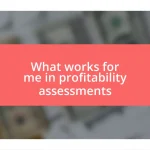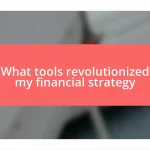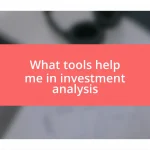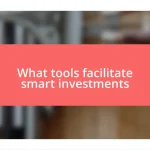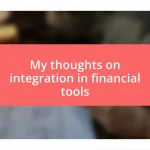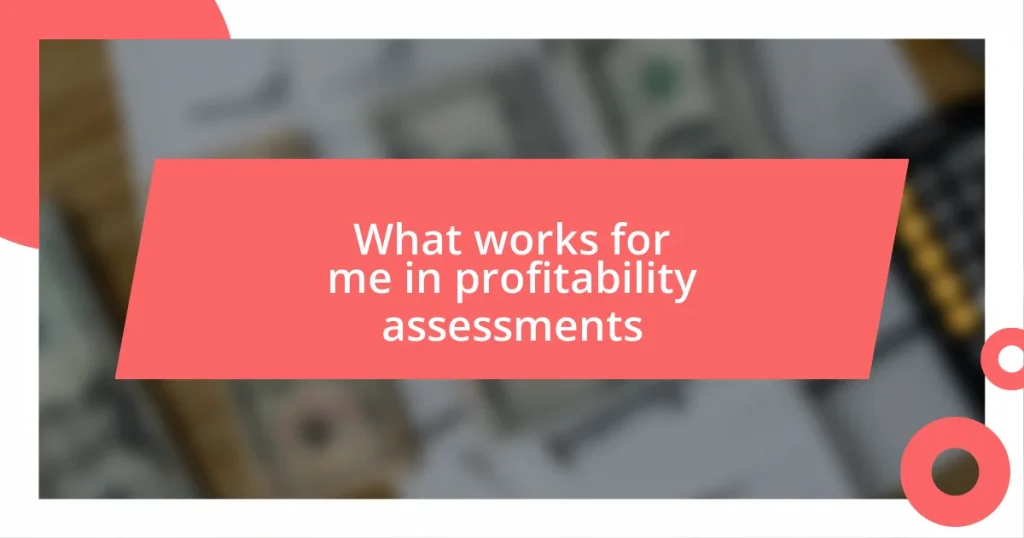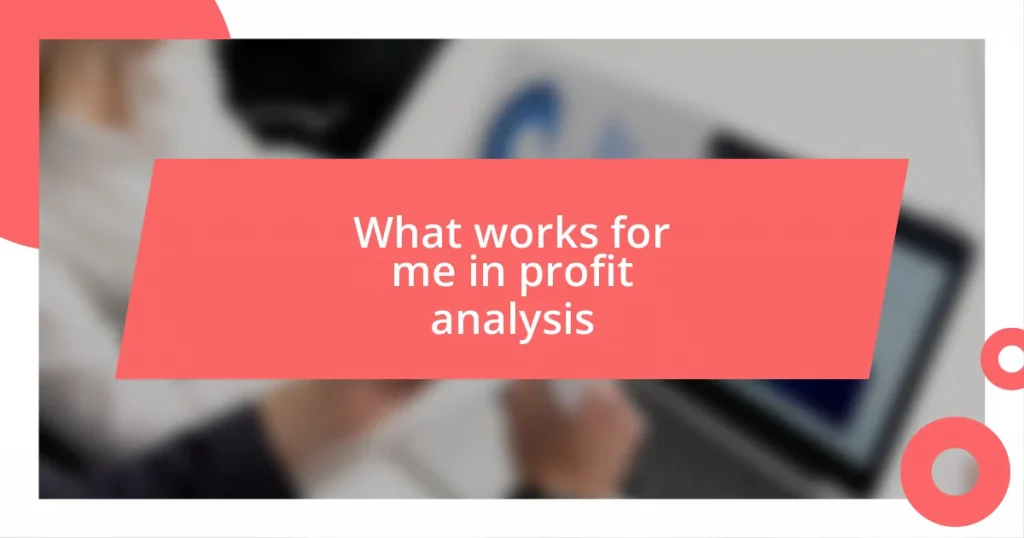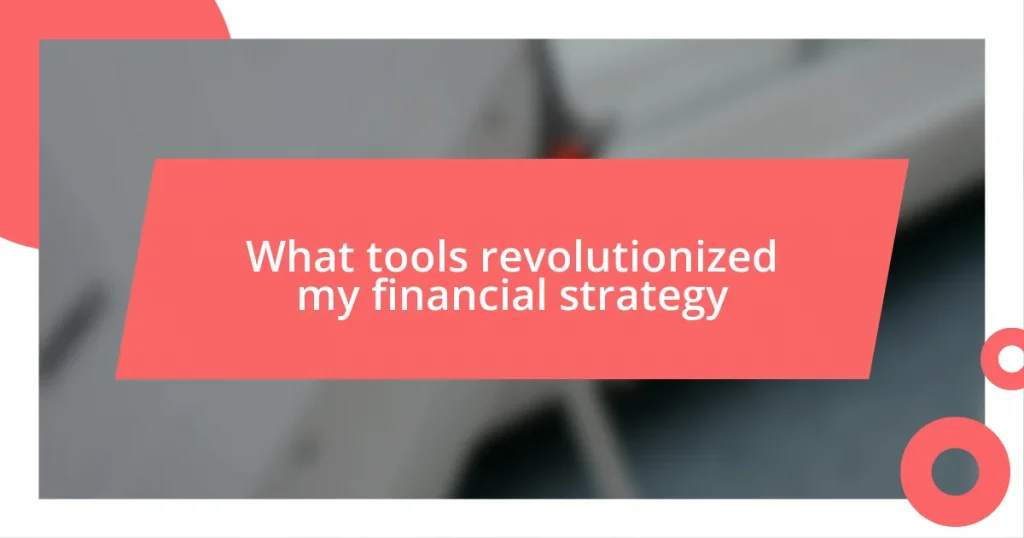Key takeaways:
- Financial intelligence involves understanding financial data in relation to personal goals and emotions, requiring both analytical skills and emotional awareness.
- Building a financial intelligence framework entails self-awareness, data analysis, and continuous education to enhance decision-making and financial management.
- Real-life applications of financial intelligence, such as negotiating better deals and effective retirement planning, showcase its transformative impact on financial empowerment and stability.
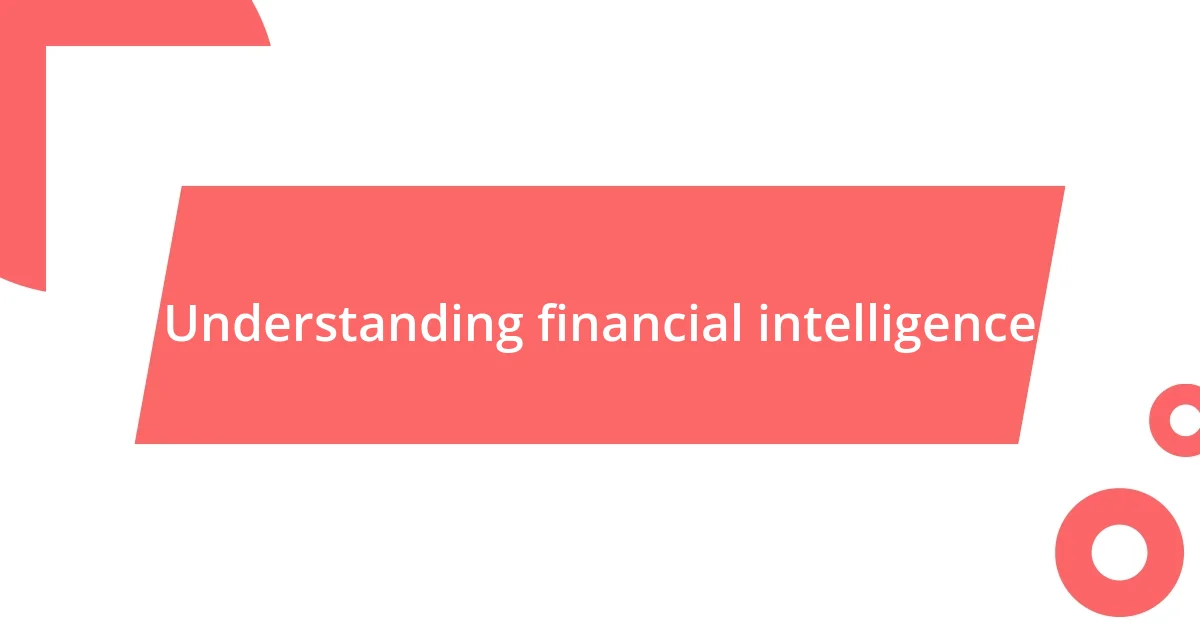
Understanding financial intelligence
Financial intelligence is more than just crunching numbers; it’s about understanding the story those numbers tell. I remember when I first realized this—sitting in a financial seminar, completely lost in the jargon, when suddenly the speaker broke down a complex budget into simple, relatable terms. It hit me like a bolt of lightning: understanding your finances means interpreting the data in a way that resonates with your personal goals and values.
I often reflect on how emotions play a crucial role in our financial decisions—fear can lead to missed opportunities, while overconfidence can result in reckless spending. It’s a delicate balance. Have you ever made a purchase, only to feel a pang of regret afterward? That’s our emotional intelligence wrestling with our financial literacy, reminding us that successful financial management requires both analytical skills and emotional awareness.
In my journey, I’ve found that nurturing my financial intelligence meant asking the right questions: What do I truly want to achieve? How does this investment align with my long-term goals? By framing my financial decisions with purpose, I’ve gained clarity and direction, transforming my relationship with money from a source of stress to a tool for empowerment.
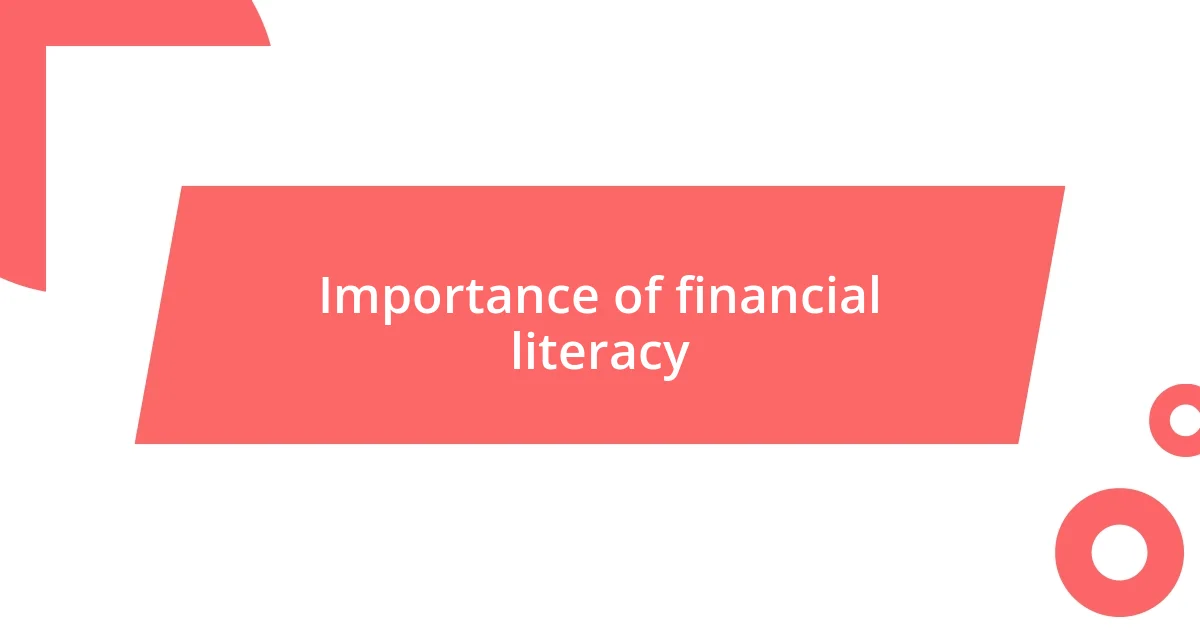
Importance of financial literacy
Financial literacy is foundational to making informed decisions that impact our lives—both positively and negatively. There was a time when I neglected to budget, thinking it was too restrictive. Then, I experienced the repercussions: unexpected bills turned my stress levels up a notch. That eye-opening moment pushed me to take charge of my finances. Understanding money not only fosters better decision-making but also equips us to handle emergencies with confidence.
- Improves decision-making and investment skills.
- Empowers individuals to plan for retirement effectively.
- Reduces anxiety around financial issues.
- Enhances understanding of financial products and services.
- Encourages setting and achieving financial goals.
I’ve often seen friends buying the latest gadget or investing in risky stocks without fully grasping the implications. Watching them struggle later emphasized how critical financial literacy is in today’s world. When we equip ourselves with this knowledge, we transform what could be a source of fear into a pathway towards stability and prosperity.
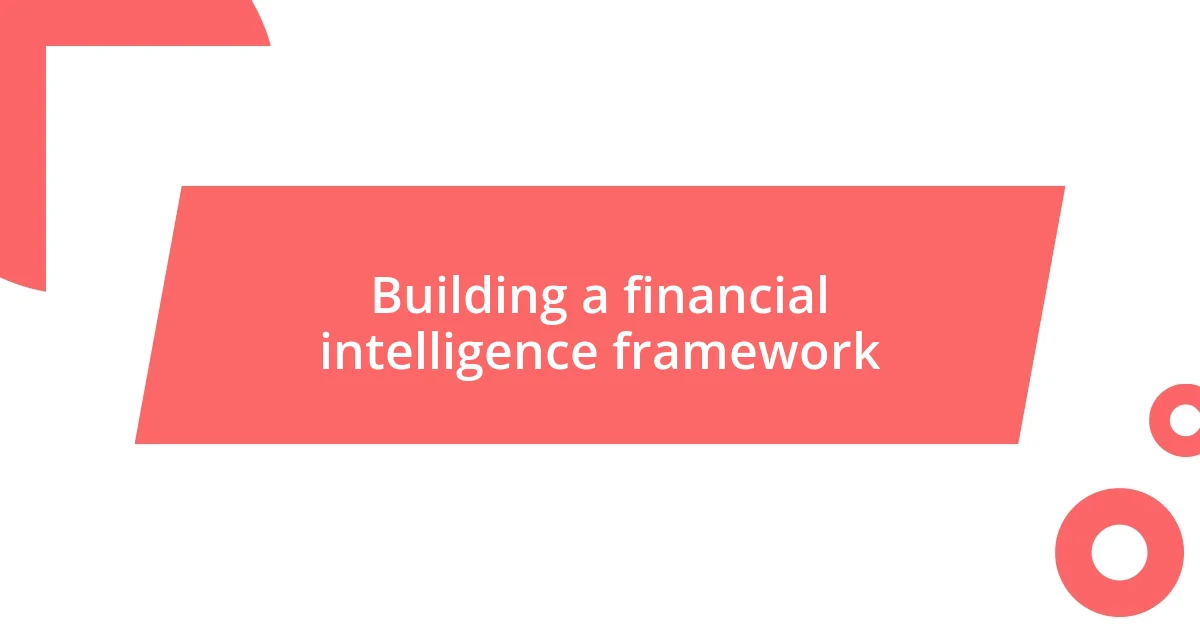
Building a financial intelligence framework
Building a solid financial intelligence framework starts with self-awareness. I remember my first encounter with budgeting—initially, it felt like a chore. Over time, however, I discovered it was liberating; I could visualize my spending and saving in the context of my greater financial goals. This self-awareness sparked a motivation to ensure that every dollar spent was intentional.
Once I’ve established my goals, the next step is to gather and analyze data. Using apps and tools to track expenditures helped me uncover patterns in my financial habits. For example, I was shocked to see how much I spent on dining out monthly, which prompted me to rethink my approach. This analysis not only kept me accountable but opened my eyes to opportunities for saving.
Lastly, I emphasize continuous education as an integral part of this framework. Engaging with books, podcasts, and financial communities has been a game-changer for me. Recently, I attended a workshop that highlighted investment strategies—I felt empowered as I collected insights about stocks, bonds, and mutual funds. This ongoing learning journey ensures I stay adaptable and informed in an ever-changing financial landscape.
| Framework Element | Description |
|---|---|
| Self-Awareness | Understanding your financial behavior and values. |
| Data Analysis | Tracking expenditures and identifying spending patterns. |
| Continuous Education | Commitment to learning about financial tools and strategies. |
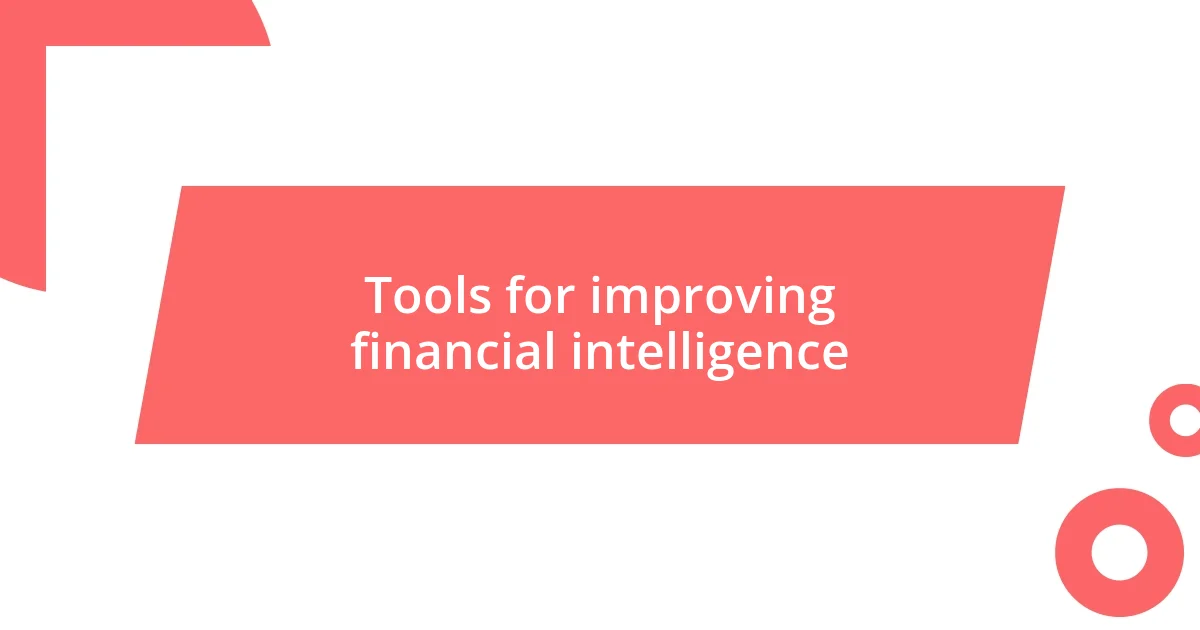
Tools for improving financial intelligence
One of the most valuable tools I’ve found for improving financial intelligence is budgeting software. I remember the first time I tried a popular app; the graphs and visuals transformed my numbers into stories. Suddenly, my spending habits were laid bare, and I could see where I was overspending. Have you ever experienced that moment of realization when you check your balances? It can be both uncomfortable and enlightening, but it’s a vital step toward mastering your finances.
Another powerful resource is online courses focused on personal finance and investing. I took one that broke down complex topics into digestible lessons, which was a game changer for me. For instance, I learned not just about stocks but the nuances of risk management and diversification. This knowledge allowed me to feel secure enough to invest, knowing I had a solid understanding of what I was doing. Isn’t it amazing how a structured course can turn confusing jargon into clarity?
Joining financial forums and communities also enriched my understanding. Interacting with like-minded individuals who share their successes and failures creates a real sense of camaraderie. When I first joined, I felt both nervous and excited to share my experiences. Over time, those conversations provided insight I never would have gained alone. There’s something reassuring about knowing you’re not navigating this journey in isolation. Have you thought about who you surround yourself with in your financial journey? Engaging with others can open up new ideas and perspectives!
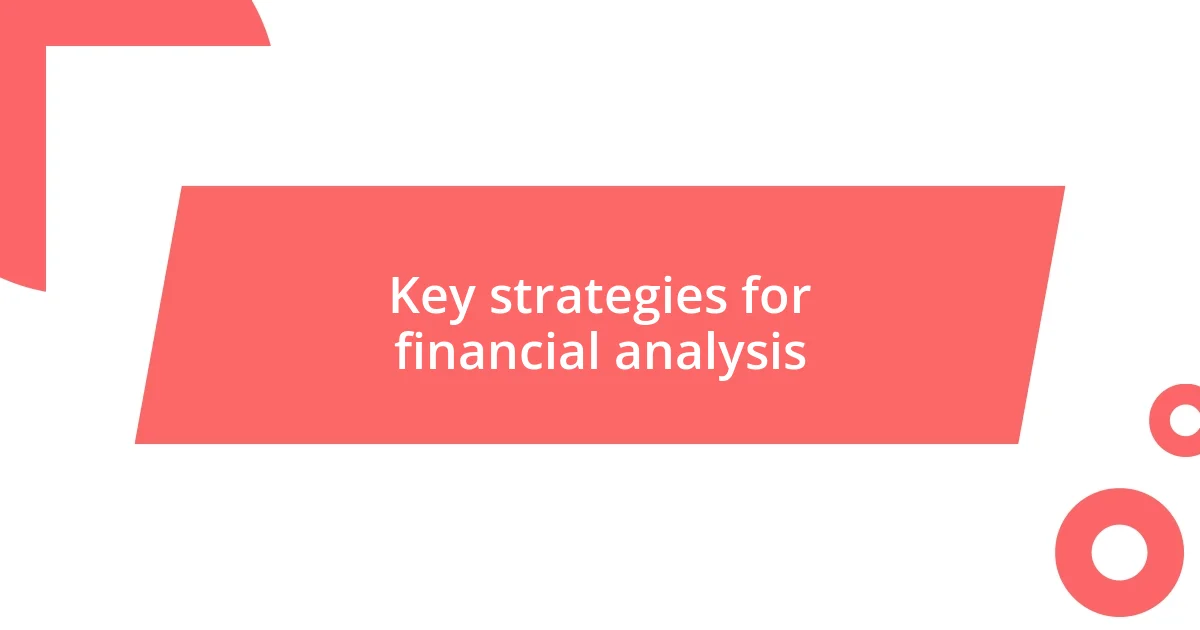
Key strategies for financial analysis
One key strategy for effective financial analysis is to establish a clear set of performance metrics. In my own experience, I set monthly benchmarks for savings and spending, which not only created accountability but also fostered a healthy competition with myself. Have you ever challenged yourself to surpass a financial goal? It can be incredibly motivating to see those numbers shift as you refine your spending habits, making your financial health feel more tangible.
Another crucial element is to regularly review financial statements, such as income statements and balance sheets. This practice may sound tedious, but breaking it down into manageable monthly reviews changed the way I perceived my financial progress. For instance, during one of my reviews, I discovered I had accrued more savings than I expected—a delightful surprise that encouraged me to keep pushing forward. It’s almost like uncovering hidden treasures in your financial journey; have you explored your financial statements lately?
Lastly, embracing scenario analysis can further enhance your financial acumen. I once explored different hypothetical situations, like what would happen if I increased my investment contributions by 10%. The results were eye-opening, revealing how small adjustments could significantly impact my long-term wealth. Have you ever played around with “what-if” scenarios? It’s a fantastic way to visualize potential outcomes and make more informed decisions before committing to a financial strategy.
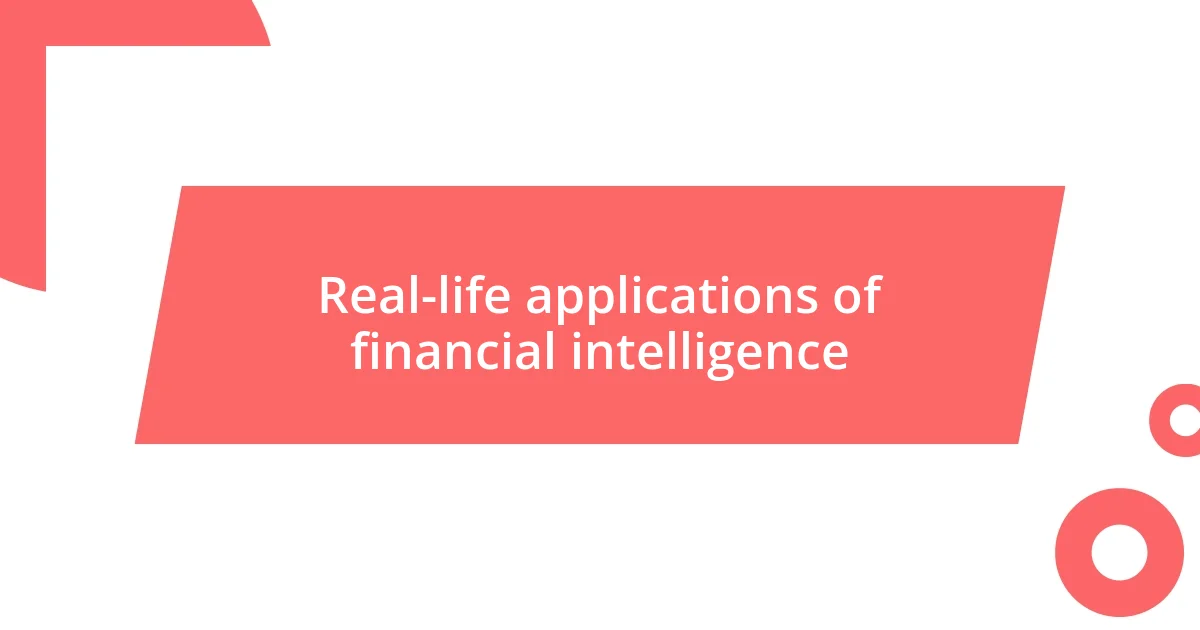
Real-life applications of financial intelligence
I often think about how financial intelligence isn’t just about crunching numbers; it’s about making informed decisions that impact real life. For example, when I first started using my knowledge of financial intelligence, I decided to negotiate a better deal on my car insurance. Initially, the thought of confronting an insurance agent was intimidating, but I armed myself with research on competing rates. The result? A significant monthly savings that I redirected toward my savings — talk about a win-win! Have you ever realized how empowering it feels when you take charge of your financial choices?
Investing in the stock market also highlights the application of financial intelligence in real life. After educating myself through various resources, I felt confident enough to purchase shares in a company I believed in. My first investment was nerve-wracking; I felt a mix of excitement and fear. Over time, I learned to analyze market trends and diversify my portfolio. Now, looking back, I see those small decisions accumulating into substantial growth—it’s astonishing how financial intelligence can transform uncertainty into strategic planning, isn’t it?
Another practical application lies in retirement planning. I distinctly remember sitting down with a financial advisor who helped me project how much I would need to save to maintain my lifestyle in retirement. It was a moment of clarity; knowing my target made budgeting easier and more purposeful. This understanding fueled my motivation to contribute to my retirement accounts consistently. Have you thought about what your retirement could look like? It’s illuminating to realize that financial intelligence is about forging a path toward your future with confidence and intention.
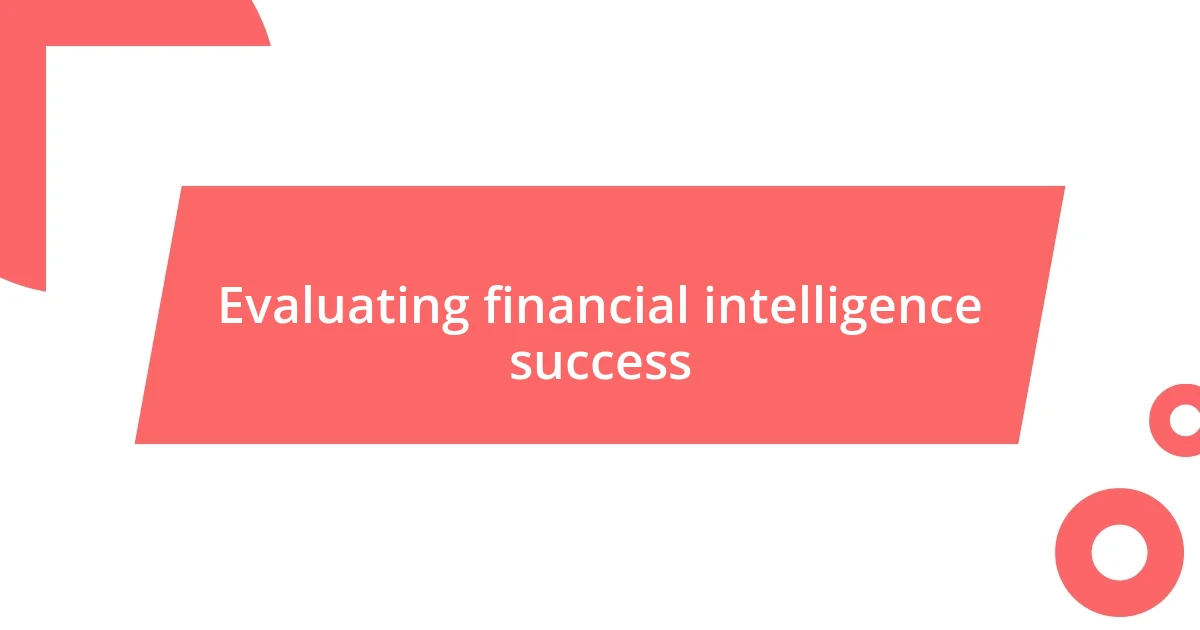
Evaluating financial intelligence success
Evaluating the success of your financial intelligence efforts can often feel like navigating a winding path. I usually start by comparing my actual outcomes against the benchmarks I established earlier. During one of these evaluations, I discovered that I had exceeded my savings goal by 20% in just six months. This realization not only validated my strategies but also infused me with excitement—who wouldn’t feel a rush of motivation seeing tangible results?
To further refine my approach, I look at the effectiveness of specific tactics. For instance, I implemented a budgeting app that tracks my daily spending. Initially, I underestimated its impact. However, after three months, I noticed a significant decrease in impulse purchases and an increase in my overall financial awareness. Have you tried using technology to analyze your spending habits? Trust me, it can be like turning on a light in a dim room.
Another layer of evaluation involves seeking external feedback from trustworthy financial mentors or peers. When I opened up about my financial milestones to an accountability partner, I received invaluable insights that changed my perspective. They challenged me to think bigger and encouraged me to tackle new investment strategies. Have you ever shared your financial journey with someone else? Sometimes, a fresh perspective can ignite new ideas and push you toward even greater financial success.
